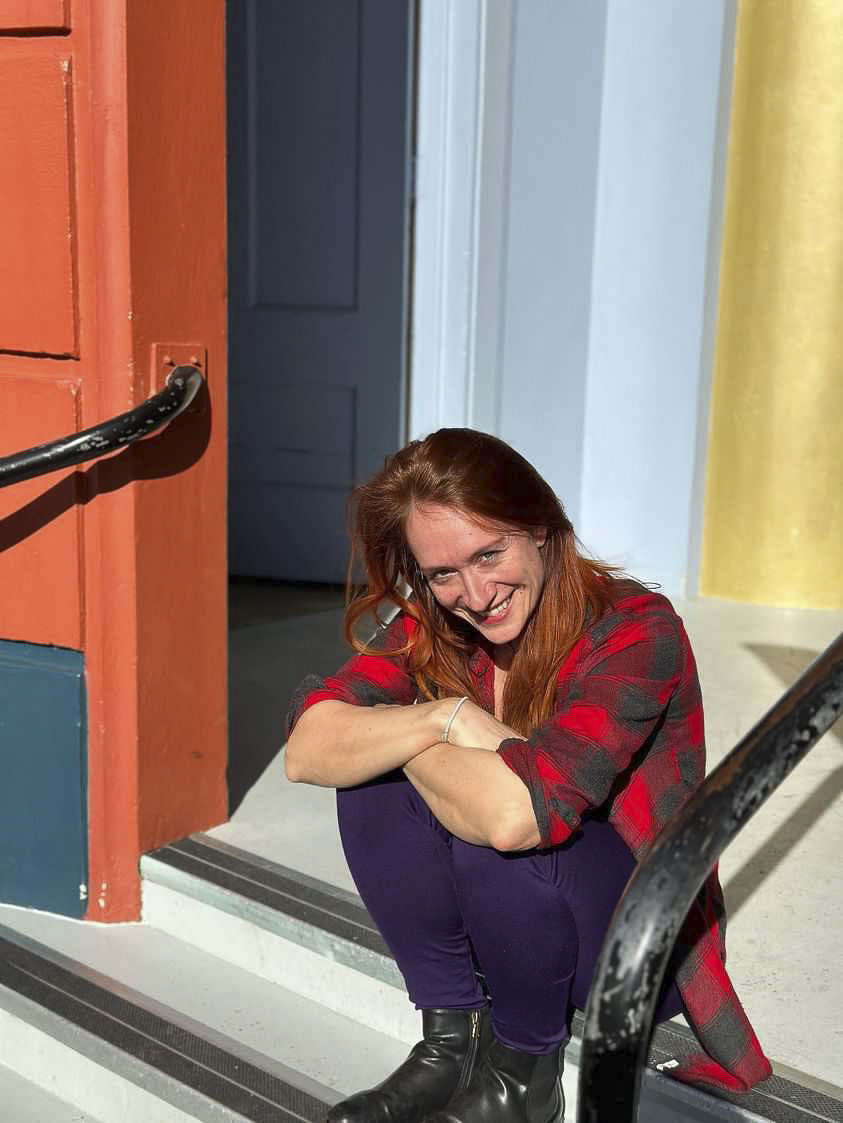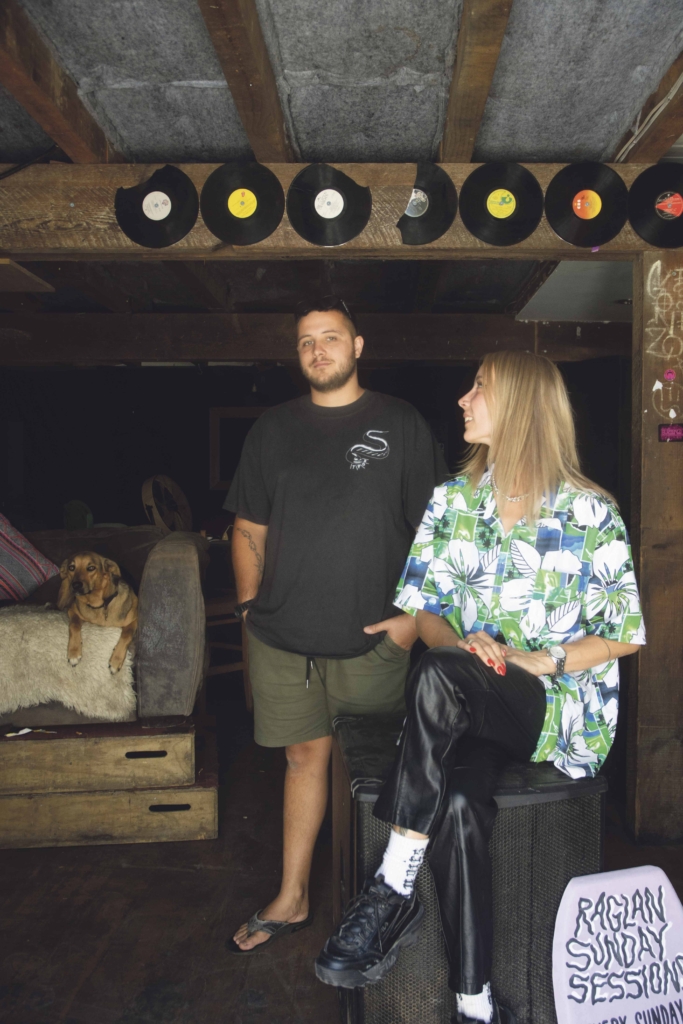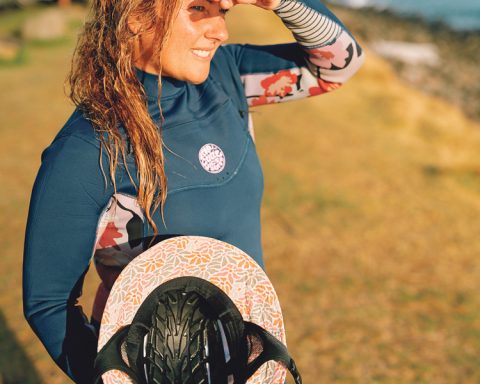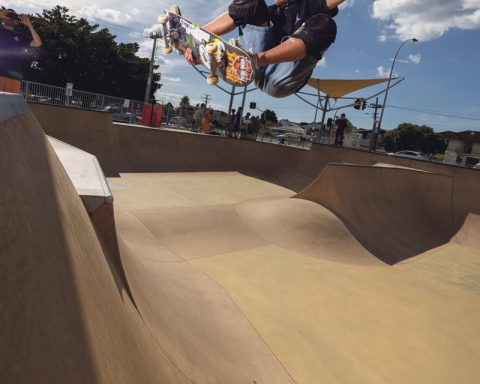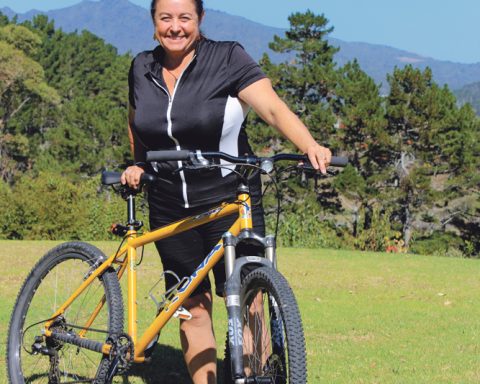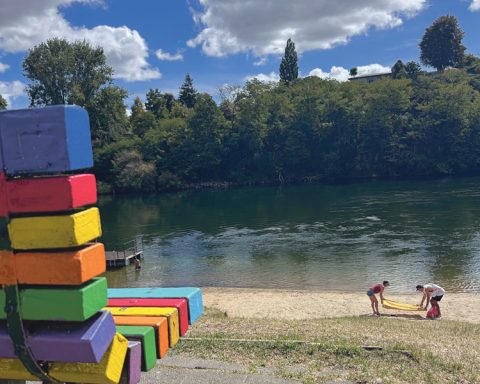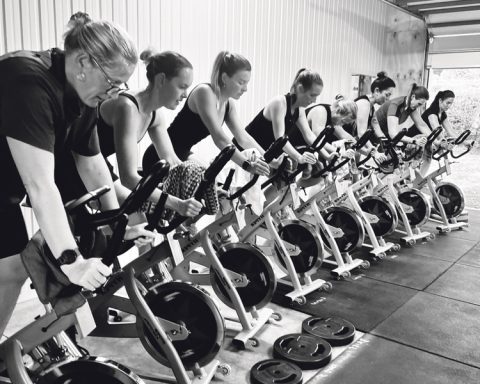Welcome back to the Mental Health column for 2024. This month I spoke with Resa. Resa has lived in Raglan for seven years and is originally from Berlin, Germany. She has a weekly radio show on Raglan Community Radio on Tuesdays from 7.30pm and works as an event officer at Waikato District Council.
What is your relationship like with your mental health? Is it something that you think about often?
It’s been in the forefront of my mind for at least 15 years. I think in my mid 20s it started to be an issue. I thought, ‘ok I have to attack this and deal with it properly.’ Ever since then it’s been an everyday thing to check in. I try to find the right feeling words to describe it. Sometimes it’s just ‘I’m happy, I’m sad, I’m angry.’ Those are the three main ones but I’m trying to be a bit more specific; ‘I’m grieving, I’m disappointed, I’m jealous’. Then I try to move through it and not avoid it. I think we are really good at distracting ourselves if we aren’t feeling great. We don’t get taught how to deal with that stuff and our parents haven’t been taught. If I look at my whānau, there’s no awareness of that stuff. There should be a school subject on how to prepare for emotions. What I get stuck on is this negative loop; I’m a bad person, I can’t do anything right. You just keep talking yourself down and making yourself feel worse. The way you talk to yourself is important.
What was your relationship like with your mental health when you were younger?
My parents got divorced when I was 4 or 5 and then my mum went down a road of addiction and bad partners. From the age of seven to twelve, I saw my mum really struggling. You feel that energy but I didn’t want to talk badly about her to dad so I kept it to myself and it bubbled up in other ways. My report card always said ‘Teresa is never finding the right words to talk to her peers, she’s really rude.’ The way that stress manifested, I didn’t know how to socially behave. I was really struggling with that and lying awake at night and going over the things that were happening and trying to deal with them. As a kid, you don’t know how to handle strong emotions. It was mainly fear for my mum. I would dissociate and disconnect from it. But then it means you disconnect from all of your feelings. My dad later on said he saw that I was struggling, he just didn’t know how to cope with it. He didn’t want to take me away from my mum because that would have been really hard too. That was the thing though, I was there for her. I was trying to fix her. I was her parent and I sometimes feel like I still am. The way our relationship formed was never the mother-daughter relationship in a typical sense. I always felt like it was me taking care of her. Now, I’m a caretaker. I want to fix other people’s problems.
When you’ve been at your lowest point, what is it that’s got you through?
Therapy for sure. I notice if you talk to your friends, they’re gonna give you friendship advice. Having a neutral person to check things through and get help from really was important. With that I learned to understand those things as phases. I wrote them down and they’re on my bedroom mirror. Phrases like ‘this won’t last forever’, ‘you won’t always feel this way’, ‘this too shall pass’. I see those every morning, and think, ok yesterday I felt shit but I will move through it and I will be fine. Sometimes that takes a day, a week, a month, a couple months, whatever it is. Having the trust that it is not always going to be like this. That has helped a lot. You are not your thoughts.
Have you felt the cultural differences in your relationships moving from Berlin to a small town in New Zealand?
Totally. Being German stereotypically means we’re quite blunt. We don’t shy away from conflict. I’m used to that in my work life and in my personal life. I came here and everybody is so friendly and so happy and then I discovered that lots of that is a facade. “She’ll be right.” It’s the classic Kiwi attitude which I sometimes struggle with. But then you notice which people you’re drawn to and I’m good at noticing that and stepping away from people who I’m not feeling. When I found out that New Zealand has quite a high suicide rate, it kind of made sense. People just don’t talk about their stuff in the same way.
What are some of the lessons that you’ve learned?
That there is no easy solution to a complex problem. It’s not just going for a surf and talking to a therapist and taking some meds and it’ll be fine. It’s a process and a lifelong lesson to learn. It’s never going to be done. I’ve always been a person who is either super high or super low. I’m realising I can exist in the in between. Often things are just ok. It takes so long to be comfortable living in that middle space. If you’ve never lived in that state, then it feels like something is wrong. This can reflect in the way you choose your friends or your partners. Everything has to be high intensity, in one way or the other. It’s funny because I sometimes believe that’s why I’m still in Raglan. Being a city girl who lived in Berlin most of her life, coming to NZ and having so much space and nature has helped a lot. Sometimes just stepping away from home is enough to lift you. I don’t know where I’d be without the ocean. It washes everything away. I had a bad day yesterday, so I went to Manu Bay for a surf. It was perfect conditions and I was in for a three hour session. For the last hour I was in the water alone with the moon and it was epic. It made my whole day switch around.
What are some of the tools in your toolbox?
The mirror mantras are something you see every day. If I’m going through a rough time, that’s what I always come back to. Move through it. I talk to myself all the time. I think it’s how I process. If it stays internal in your brain you keep mulling it around but if you write it down or say it out loud, it changes immediately. Sometimes people don’t take the time. It’s just feeling then reacting. Step back for a bit and reassess. Look at what is actually happening. Your thoughts can mess things up all the time. When it comes to regular coping mechanisms; exercise, yoga, breath. Deep breaths are a nervous system regulator. We do flat breathing during the day and I notice when I get anxious my breathing is so shallow. I try to do bigger breaths. It’s different for everybody.
